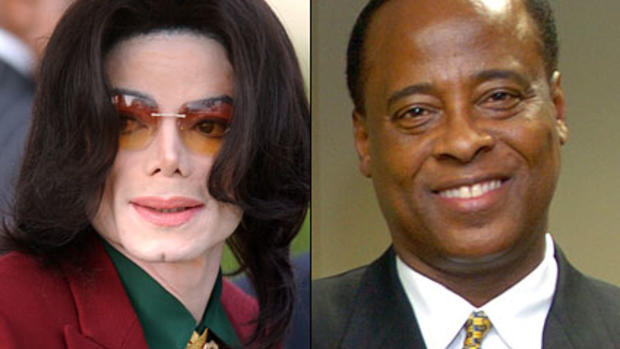Ex-Michael Jackson lawyer makes case vs. Murray
Opening statements were on tap Tuesday in the trial of the doctor caring for Michael Jackson when he died two years ago, Conrad Murray.
The jury was seated late last week and must decide if Murray is guilty of involuntary manslaughter. A conviction could mean four years in prison.
After the opening statements, reports CBS News Correspondent Ben Tracy, the prosecution's first witness will be Kenny Ortega, co-director of the "This Is It" tour Jackson was rehearsing for when he died.
Special coverage: The trial of Dr. Conrad Murray
"Right out of the gate ... the prosecution wants to leave an impact with this jury," explains CBS News legal analyst Trent Copeland, "and I think the best person to do that is Kenny Ortega. What he'll testify to is that Michael Jackson was in good health. He showed no signs of suicidal tendencies. He showed no signs of depression, that he was eager to move forward with his concert schedule."
"What's striking about the jury," Copeland observes, "is how well-educated they are. Although some are unemployed, these are people who lost good-paying jobs. The reason that's important is that this jury will be called upon to hear and understand and synthesize very complex medical terms. That benefits the prosecution."
Prosecutors will argue that Murray showed a reckless disregard for Jackson's health by giving him the powerful anesthetic Propofol as a sleeping aid.
But the defense is expected to attempt to prove that Jackson administered the fatal dose of Propofol himself.
Jackson biographer J. Randy Taraborrelli, a CBS News consultant, says, "I think that he was not depressed. I think he was not unhappy. I think he was overworked. I think he was thin. He probably wasn't eating, but this was Michael Jackson's life and times."
On "The Early Show" Tuesday, Jackson's former lawyer, Tom Mesereau, pointed to several elements he sees as working against Murray.
"First of all," Mesereau told co-anchor Chris Wragge, "Propofol is not a prescription pill. It's not like prescribing a sleep pill, a depression pill, an anti-anxiety pill. Propofol is a powerful, very dangerous drug. It doesn't come in pill form and it never should be in a home. I think the prosecutors have to distinguish Propofol from other prescription medications.
"Second of all, the thing that seems very incriminating to me is that, apparently, this doctor, a physician in charge of Michael Jackson's health, never told the paramedics at the scene about Propofol, never told the police at the scene about Propofol, then he went to the hospital where they were trying to revive Michael Jackson and he still didn't mention Propofol. To me, that indicates consciousness of guilt. He knew what he did was wrong."
Will Jackson's lifestyle come into play?
"They have to be very careful how they do that," Mesereau replied, "because Michael Jackson was the most loved artist on the planet. People are enjoying his music and his legacy more and more. He's a very popular person, and if you try to devalue him or degrade him too much, in front of his family, particularly, it's going to backfire. However, they will try to say he was in poor health because of other prescription drug abuse, I think."
Murray's defense team will, Mesereau says, probably wait until the last minute to decide whether to put him on the stand. "f they think the case is going reasonably well," he said, "they won't. If they don't, they'll put him on and I think he's going to go through a real grilling on why a physician would not tell the paramedics, the police and the hospital personnel about Propofol."
